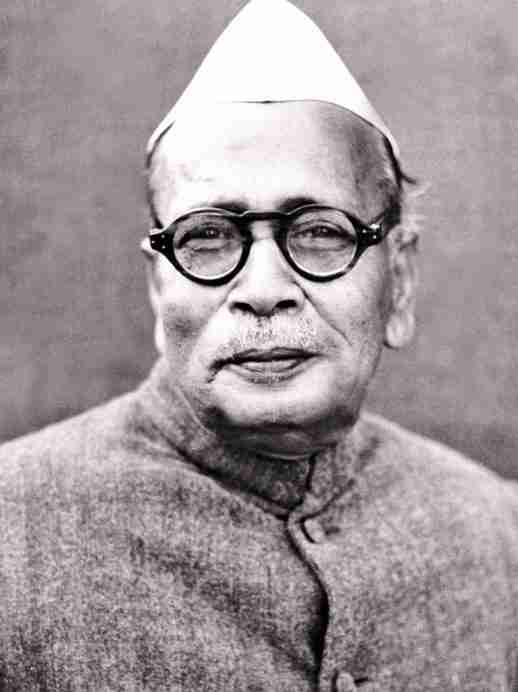20th February in India : February 20th holds a special place in the hearts of Indians, weaving together a vibrant tapestry of global significance, historical commemorations, and cultural celebrations. From the global commitment to social justice to the birth anniversary of a key architect of modern Bihar, the statehood celebration of Mizoram, and the recognition of women’s contributions through the Women’s Indian Association, the day encapsulates the diverse facets of India’s journey. Let’s unravel the significance of each element, exploring the depths of their impact on the socio-political landscape of the nation.

1. World Day of Social Justice:

On 20th February in India, the world comes together to observe the United Nations’ designated World Day of Social Justice. In India, this day resonates deeply, serving as a poignant reminder of the nation’s steadfast commitment to addressing critical issues such as poverty, exclusion, and unemployment. Beyond symbolic observance, the day reflects India’s proactive stance towards achieving social justice and fostering inclusive development. In this detailed exploration, we will unravel the multifaceted dimensions of the World Day of Social Justice in India, delving into the intricate challenges faced by the nation and examining the myriad initiatives, policies, and grassroots efforts that underscore India’s dedication to creating a more equitable and just society.
Understanding the World Day of Social Justice:
The concept of social justice is multifaceted and dynamic. This segment will delve into the origins and significance of the World Day of Social Justice, highlighting the United Nations’ role in recognizing the pressing global need to address issues such as poverty, exclusion, and unemployment. The evolving definition of social justice and its relevance in the contemporary socio-economic context will be explored.
India’s Commitment to Social Justice:
India’s commitment to social justice is not merely symbolic; it is deeply embedded in the nation’s ethos. This section will provide an overview of India’s historical and constitutional commitment to social justice, examining key policies, laws, and institutional frameworks that underscore the country’s dedication to fostering an inclusive and equitable society.
Challenges in India: 20th February in India
To address social justice issues effectively, it is crucial to understand the specific challenges faced by India. This segment will delve into the intricacies of poverty, exclusion, and unemployment, examining regional disparities, socio-economic factors, and cultural influences that contribute to the complex landscape of social justice challenges in the country.
Initiatives and Policies: 20th February in India
India has implemented a myriad of initiatives and policies aimed at mitigating social injustice. This section will provide a comprehensive exploration of key government programs, welfare schemes, and legislative measures designed to uplift marginalized communities, eradicate poverty, and promote inclusive development. Case studies and success stories will illustrate the impact of these initiatives on the ground.
Grassroots Efforts and Community Engagement:
Beyond governmental initiatives, the true spirit of social justice often thrives at the grassroots level. This segment will shed light on the remarkable efforts of non-governmental organizations, community-based organizations, and individuals working tirelessly to address social injustices. Personal stories and testimonials from those directly involved in grassroots endeavors will be featured to showcase the tangible impact of community engagement.
Innovations in Social Justice Advocacy:
In the digital age, technology and innovation play a crucial role in advocating for social justice. This section will explore how digital platforms, social media, and technological innovations are being leveraged to raise awareness, mobilize communities, and amplify the voices of marginalized groups in India. Interviews with activists and organizations at the forefront of this digital advocacy will provide insights into the evolving landscape.
Impact Measurement and Evaluation:
Measuring the impact of social justice initiatives is essential for evaluating their effectiveness. This segment will explore the metrics, indicators, and evaluation frameworks used to assess the progress and outcomes of various social justice programs in India. Expert perspectives and case studies will offer insights into the complexities of impact measurement.
Global Collaboration and Diplomacy:
Social justice is not confined to national borders. India actively engages in global collaborations, partnerships, and diplomatic efforts to address social justice issues on the international stage. This section will explore India’s role in the global discourse on social justice, examining diplomatic initiatives, participation in international forums, and collaborative projects aimed at advancing the cause globally.
Future Prospects and Challenges:
As we look to the future, it is essential to consider the evolving nature of social justice challenges. This segment will discuss the potential future challenges that India may face in its quest for social justice and explore innovative solutions and strategies that can help navigate these challenges successfully.
2. Birth Anniversary of Anugrah Narayan Sinha:

February 20th marks a significant day in the history of Bihar and India as a whole, as the nation pays tribute to Anugrah Narayan Sinha, a stalwart nationalist born on this day in 1887. Acknowledged as one of the key architects of modern Bihar, Sinha’s life and contributions have left an indelible mark on the socio-economic landscape of the state. In this comprehensive exploration, we will delve into the multifaceted life of Anugrah Narayan Sinha, highlighting his visionary leadership, significant roles as the first Deputy Chief Minister and Finance Minister of Bihar after independence, and the enduring impact he has had on Bihar’s development.
Early Life and Education:
To understand the trajectory of Anugrah Narayan Sinha’s life, we will begin by exploring his early years and education. Born into a time of significant social and political change, Sinha’s formative years were marked by an environment that fueled his passion for the nationalist cause and his commitment to the betterment of society. This segment will also touch upon his educational journey, shedding light on the influences that shaped his intellectual and ideological foundations.
Nationalist Movement and Contribution to Independence:
Anugrah Narayan Sinha actively participated in the Indian independence movement, contributing significantly to the cause. We will delve into his role in the nationalist movement, examining the campaigns, protests, and advocacy work he engaged in to secure India’s freedom. Archival materials, historical accounts, and anecdotes will be used to reconstruct the pivotal moments of Sinha’s involvement in the struggle against colonial rule.
Architect of Modern Bihar:
As one of the key architects of modern Bihar, Anugrah Narayan Sinha played a transformative role in the state’s development. This segment will explore the various initiatives, policies, and reforms spearheaded by Sinha that laid the foundation for Bihar’s socio-economic progress. His vision for industrialization, education, and rural development will be analyzed to understand how his leadership shaped the modernization of Bihar.
First Deputy Chief Minister and Finance Minister of Bihar:
After independence, Anugrah Narayan Sinha held key positions in the government, serving as the first Deputy Chief Minister and Finance Minister of Bihar. This section will provide insights into his governance philosophy, policy decisions, and administrative reforms during this crucial period. Interviews with contemporaries and archival documents will offer a nuanced perspective on Sinha’s leadership in the early post-independence years.
Visionary Leadership and Enduring Impact:
Anugrah Narayan Sinha’s visionary leadership left an enduring impact on Bihar, shaping its trajectory for years to come. This segment will explore the principles and values that guided his governance style, emphasizing the lasting contributions that continue to influence Bihar’s socio-economic and political landscape today. Interviews with historians, scholars, and policymakers will provide perspectives on the enduring legacy of Anugrah Narayan Sinha.
Commemoration and Tributes:
On his birth anniversary, Anugrah Narayan Sinha is remembered and celebrated across Bihar and beyond. This section will highlight the various commemorative events, tributes, and honors bestowed upon Sinha, showcasing how his legacy is upheld and honored by successive generations.
Legacy and Relevance Today:
The final segment will reflect on the contemporary relevance of Anugrah Narayan Sinha’s principles and contributions. We will explore how his legacy continues to inspire leaders, policymakers, and citizens in Bihar, contributing to ongoing discussions on governance, development, and social justice in the state.
3. Mizoram Statehood Day:

February 20th holds a special significance for the people of Mizoram as they celebrate Statehood Day, marking the day when Mizoram officially became the 23rd state of the Indian Union in 1987. This momentous occasion is more than a date on the calendar; it is a reflection of the struggles, triumphs, and rich heritage that define Mizoram’s journey. In this detailed exploration, we will uncover the historical narrative of Mizoram, examining the challenges faced, the triumphant moments that led to statehood, and the cultural significance embedded in the vibrant celebrations that mark this auspicious day.
Historical Context and Struggles:
The path to statehood for Mizoram was marked by a unique set of historical and political circumstances. This segment will delve into the historical context, exploring Mizoram’s journey from being a part of the princely state of Assam to its emergence as a distinct entity. The struggles and aspirations of the Mizoram people for self-governance will be highlighted, providing a nuanced understanding of the complexities involved.
Triumphant Moments and Statehood Declaration:
The declaration of Mizoram as a state on February 20, 1987, was a culmination of years of struggle and negotiations. Interviews with key figures involved in the statehood movement, archival footage, and historical documents will be used to reconstruct the triumphant moments that led to the realization of Mizoram’s aspiration for statehood.
Cultural Significance of Statehood Day Celebrations:
Statehood Day is not merely a bureaucratic formality; it is a celebration of Mizoram’s unique cultural identity. This section will explore the cultural significance embedded in the festivities that mark this day. Traditional dance performances, music, art exhibitions, and parades play a pivotal role in expressing Mizoram’s rich heritage and fostering a sense of pride and unity among its people.
Impact on Governance and Development:
The transition from being a Union Territory to a full-fledged state brought about significant changes in the governance and development landscape of Mizoram. We will examine how statehood empowered local governance structures, allowing Mizoram to chart its own course in terms of policies, development initiatives, and administration. Interviews with policymakers and community leaders will provide insights into the impact of statehood on Mizoram’s trajectory.
Cultural Events and Festivities:
Statehood Day celebrations in Mizoram are a vibrant display of the state’s cultural mosaic. This segment will provide a detailed overview of the various cultural events and festivities that take place on February 20th. Traditional attire, folk music, dance forms, and local cuisines will be showcased, highlighting the diversity and richness of Mizoram’s cultural heritage.
Community Perspectives and Testimonials:
To provide a more intimate perspective, this exploration will include interviews with community members who have witnessed Mizoram’s journey towards statehood. Their testimonials will offer firsthand accounts of the emotional and cultural significance attached to Statehood Day, providing a human touch to the historical narrative.
Legacy and Continued Progress:
As Mizoram celebrates another Statehood Day, it is essential to reflect on the legacy of the past and the ongoing progress of the state. This segment will explore how the sense of identity and autonomy gained through statehood has influenced Mizoram’s socio-economic development, governance structures, and cultural preservation efforts.
4. Anniversary of the Foundation of the Women’s Indian Association:

Founded on 20th February in India, 1917, the Women’s Indian Association (WIA) holds a hallowed place in the annals of India’s history. As one of the oldest women’s organizations in the country, the WIA’s journey has been marked by unwavering dedication to the cause of women’s rights and its significant role in the Indian independence movement. In this exploration, we delve into the origins of the Women’s Indian Association, shedding light on its pivotal role in shaping the socio-political landscape of India. By examining the achievements and challenges faced by the WIA, we pay homage to the enduring contributions of this influential organization.
Founding Principles and Vision:
The establishment of the Women’s Indian Association in 1917 was a response to the pressing need for an organized platform advocating women’s rights and social reform. This section will explore the founding principles and vision that guided the WIA, highlighting the socio-political context of India during that time and the pioneering spirit that led to the creation of this transformative organization.
Pivotal Role in the Indian Independence Movement:
The Women’s Indian Association played a crucial role in the Indian independence movement, providing a platform for women to actively participate in the struggle for freedom. This segment will delve into the contributions of WIA members to the larger freedom movement, showcasing the leadership, activism, and sacrifices made by women associated with the organization.
Advancement of Women’s Rights:
At its core, the WIA was dedicated to advancing women’s rights in India. This part of the exploration will highlight the various initiatives, campaigns, and advocacy efforts led by the WIA to secure equal rights, education, and opportunities for women. Interviews with scholars and historians will provide insights into the impact of the WIA on the evolving discourse around women’s rights in India.
Achievements of the Women’s Indian Association:
The Women’s Indian Association has achieved numerous milestones throughout its history. This section will provide an in-depth examination of key accomplishments, such as policy advocacy, legal reforms, and the establishment of educational and healthcare initiatives. By highlighting specific achievements, we can appreciate the tangible impact of the WIA on the lives of Indian women.
Challenges Faced by the WIA:
The journey of the Women’s Indian Association was not without challenges. This segment will explore the obstacles and resistance faced by the organization, both internally and externally. Issues such as societal norms, opposition to women’s activism, and financial constraints will be discussed, offering a nuanced perspective on the complexities of the WIA’s mission.
Legacy and Continuing Impact:
As we celebrate the anniversary of the WIA’s foundation, it is crucial to examine its enduring legacy and continuing impact. This section will explore how the WIA’s work has influenced subsequent generations of women’s rights activists and organizations, shaping the ongoing fight for gender equality in India.
Commemorative Events and Celebrations:
The anniversary of the Women’s Indian Association serves as an opportunity to commemorate its legacy. This segment will highlight events, exhibitions, and celebrations organized to honor the WIA’s contributions. Interviews with contemporary leaders and members of the organization will provide insights into how the WIA’s principles continue to inspire current efforts for women’s empowerment.
5. National Deworming Day:
On 20th February in India, India observes National Deworming Day, a crucial initiative aimed at addressing the pervasive issue of intestinal worm infections among children. This day is not just a mark on the calendar; it symbolizes a dedicated effort by the government to ensure the health and well-being of the nation’s future generation. In this exploration, we will delve into the intricacies of National Deworming Day, examining the government’s initiatives, the impact of deworming campaigns in schools and anganwadis across the country, and the broader implications for the health and well-being of Indian children.
Understanding the Importance of Deworming:
Intestinal worm infections pose a significant threat to the health and development of children. This section will provide insights into the types of worms affecting children, the transmission mechanisms, and the potential consequences of untreated infections. Understanding the importance of deworming lays the foundation for recognizing the significance of National Deworming Day.
Government Initiatives and Policy Framework:
The government’s commitment to addressing the issue of intestinal worm infections is reflected in the initiation of National Deworming Day. We will explore the policy framework surrounding this initiative, detailing the objectives, strategies, and collaborations involved. Interviews with health officials and policymakers will provide perspectives on the government’s vision for child health through deworming campaigns.
Deworming Campaigns in Schools and Anganwadis:
National Deworming Day involves large-scale deworming campaigns conducted in schools and anganwadis (childcare centers) across the country. This segment will delve into the logistics of these campaigns, exploring how they are organized, the role of healthcare professionals and volunteers, and the engagement with educational institutions to ensure widespread coverage.
Impact on Child Health and Well-being:
The primary goal of National Deworming Day is to improve the health and well-being of Indian children. Through interviews with health professionals and testimonials from communities, we will explore the tangible impact of deworming campaigns on reducing the prevalence of intestinal worm infections. Additionally, we will investigate the potential long-term benefits, such as improved nutritional status, cognitive development, and school attendance.
Challenges and Innovations:
While National Deworming Day has made significant strides, challenges persist. This segment will highlight the hurdles faced in implementing deworming campaigns, including logistical issues, community awareness, and the need for sustained efforts. Innovative approaches, such as leveraging technology for awareness campaigns and monitoring, will be explored as potential solutions.
Community Engagement and Awareness:
Community involvement is critical for the success of deworming initiatives. We will showcase community engagement efforts, including awareness programs, educational workshops, and the role of local leaders in mobilizing support. Interviews with community members will provide insights into their perceptions of National Deworming Day and its impact on their children’s health.
Measuring Success and Future Prospects:
Measuring the success of National Deworming Day requires assessing both short-term outcomes and long-term trends. This section will explore the metrics used to evaluate the effectiveness of deworming campaigns and discuss the future prospects of the initiative, including potential expansions, policy enhancements, and sustained efforts towards a worm-free India.
6. Recognition of Bharat Ratna to Bhagwan Das:
February 20, 1955, marks the day when Bhagwan Das, a distinguished Indian independence activist and founder of the Kashi Vidya Peeth, was conferred with the Bharat Ratna. This segment will delve into the life and contributions of Bhagwan Das, highlighting the significance of his recognition as India’s highest civilian honor and its lasting impact on the nation.
7. Festivals and Celebrations:
As we conclude our exploration of 20th February in India, we will delve into the myriad festivals and celebrations observed by various states and communities on this day. This will showcase the diversity and unity within India, as different regions come together to celebrate their unique cultural identities, contributing to the colorful tapestry of the nation.
ALSO READ : Local News Platform: Apne Shahar ki Awaaz, Apna Vyavsay
Conclusion: 20th February in India
In the grand mosaic of India’s cultural and historical calendar, February 20th stands as a day of profound significance. From global aspirations for social justice to honoring historical figures and celebrating the diverse cultural fabric of the nation, each element contributes to the collective identity and progress of India. As we reflect on this special day, we gain a deeper understanding of the ongoing journey towards a more inclusive, just, and culturally vibrant India.















